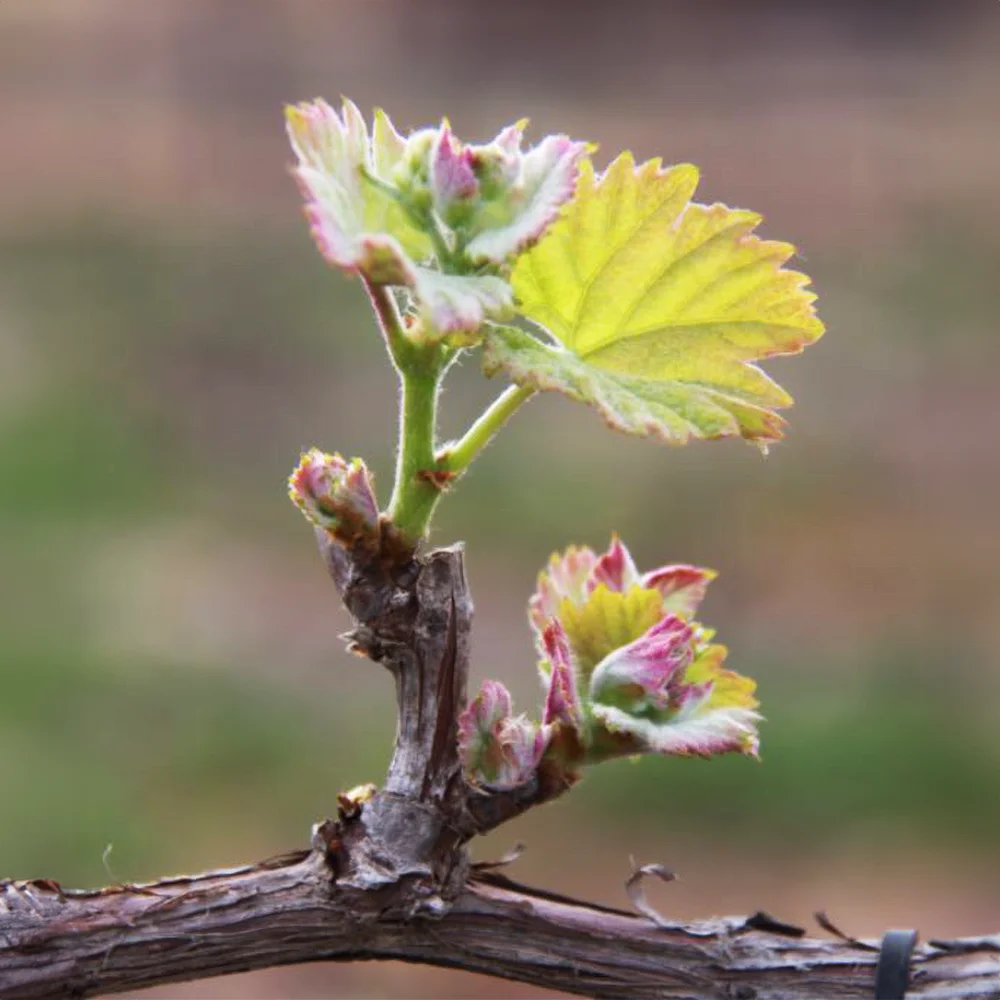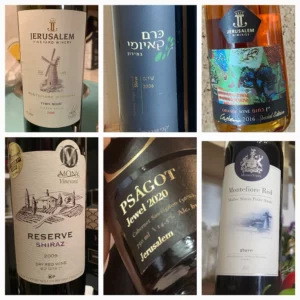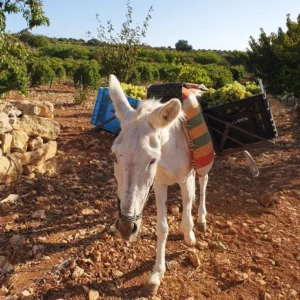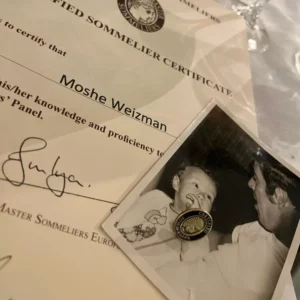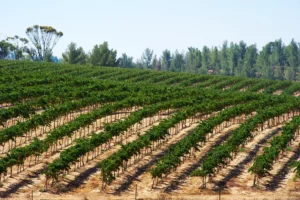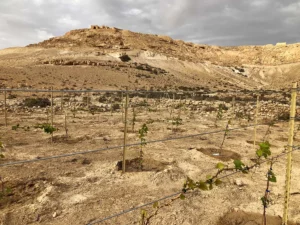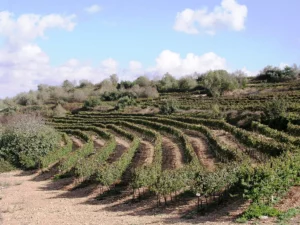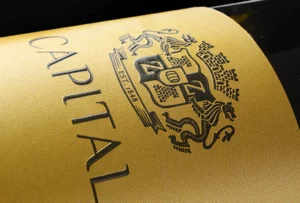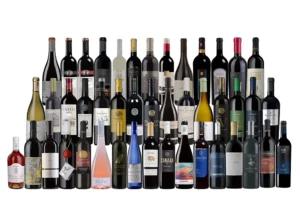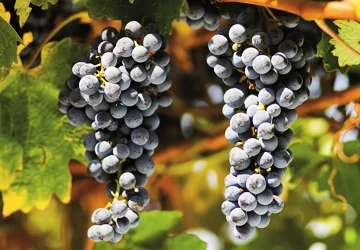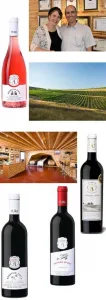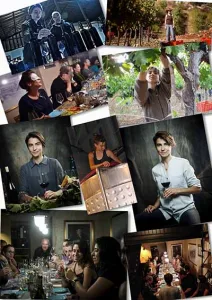To quote the late Queen Elizabeth II, the Jewish year of 5784 has so far been an annus horribilis for Israeli wine. Now Passover is upon us. The first since that black day October 7th, which changed everything for the worse. Passover is the main wine selling season in the Jewish year (like Christmas elsewhere.) It is arguably the most famous Jewish festival. Jews and Israelis all over the world, whether religious or secular, will sit down with their family, and tell the story of the Exodus from Egypt to the Promised Land. It is known as the Festival of Spring, the First Harvest Festival, The Festival of Unleavened Bread and The Festival of Freedom. Passover is the essence of the Jewish story, emerging as an independent people, and returning to the Promised Land. It is also the Festival of Wine!
Wine features through every Jewish lifestyle ceremony. Grapes were one of the Seven Blessed Species in the Bible, and in Judaism, wine even has its own blessing for “the fruit of the vine.” At Passover everyone is expected drink Arba Kossot, ‘Four Glasses of Wine.’ Children will drink grape juice, but the adults will drink wine, in every Jewish home around the globe. It goes without saying that this year, everyone should make a special effort to buy Israeli wine to support the growers, wineries and winemakers. If I could be more specific, buy a wine from an Upper Galilee winery.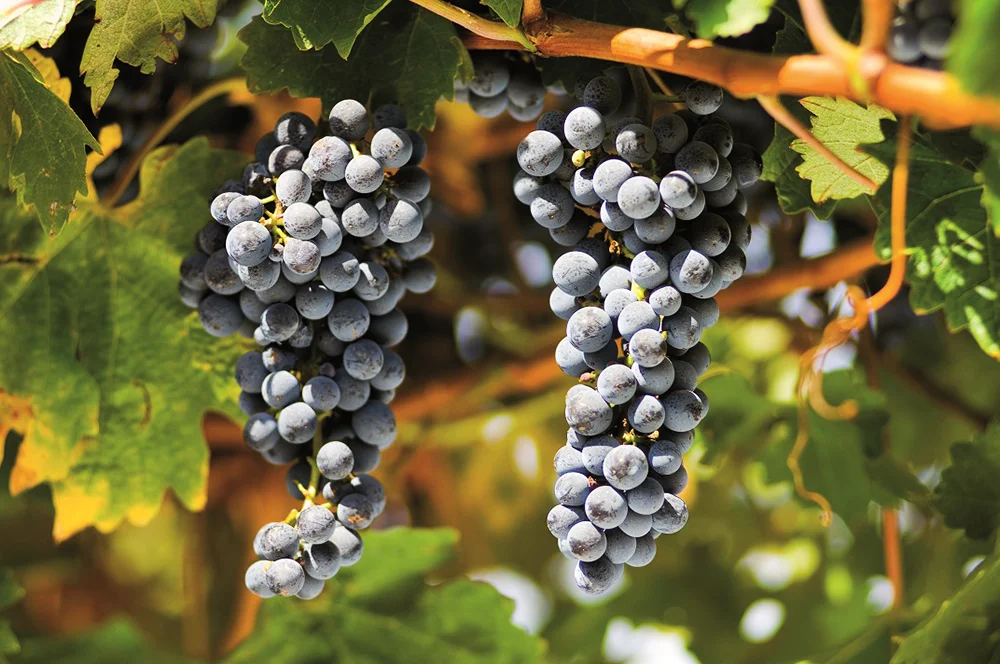
The Passover evening is called the Seder Night, at which the story is told and a festive meal, rich in symbolism, is eaten. The meal historically was developed to copy the Roman banquet. Like any banquet, the service of wine follows the usual rules. The first glass is the aperitif and it can be a sparkling wine. The second glass may be a white wine. The necessary glass for religious ritual is drunk before the meal, but it can be continued to accompany the first courses, which are likely to feature fish. For the main course, usually meat, you could choose a red wine. The ritual third glass is after the meal, but the red wine could be extended for this purpose too. The last glass is the dessert wine. A sweet wine is appropriate to end the meal on a sweet note, but a quality dessert wine is recommended rather than a sacramental wine.
Now, many people host very large Seder Nights, with wider members of the family. Maybe it is the only time of the year one meets distant cousins, aunts and uncles. For a large party, they will almost certainly prefer less expensive wines. This is absolutely fine. It is not the time to bring dusty, well-aged rare wines from your cellar.
In both the Jewish, and for that matter, the Christian religion, there is often a preference for red wines for religious ritual. However, when red became associated with the Blood Libel, whites became the option to avoid the threat and risk of persecution. Those preferring to focus on red for traditional reasons, may choose roses and light reds to replace the whites in order to satisfy this demand, whilst maintaining the balance of the traditional banquet. In actual fact, the choice of wine is personal. The host can choose exactly what they want at whatever price point is within their budget. The only rule that is unalterable is the need to consume the four ritual cups, but the choice of wine is flexible. The amount of wine that constitutes a cup is a revi’it, which may be considered to be about 103 ml. (As with everything in the Jewish religion there are different opinions.) The standard glass of wine is 125 ml. or 150 ml, depending on the size of glass and your host’s generosity! So, the ritual requirement is less than a regular wine glass.
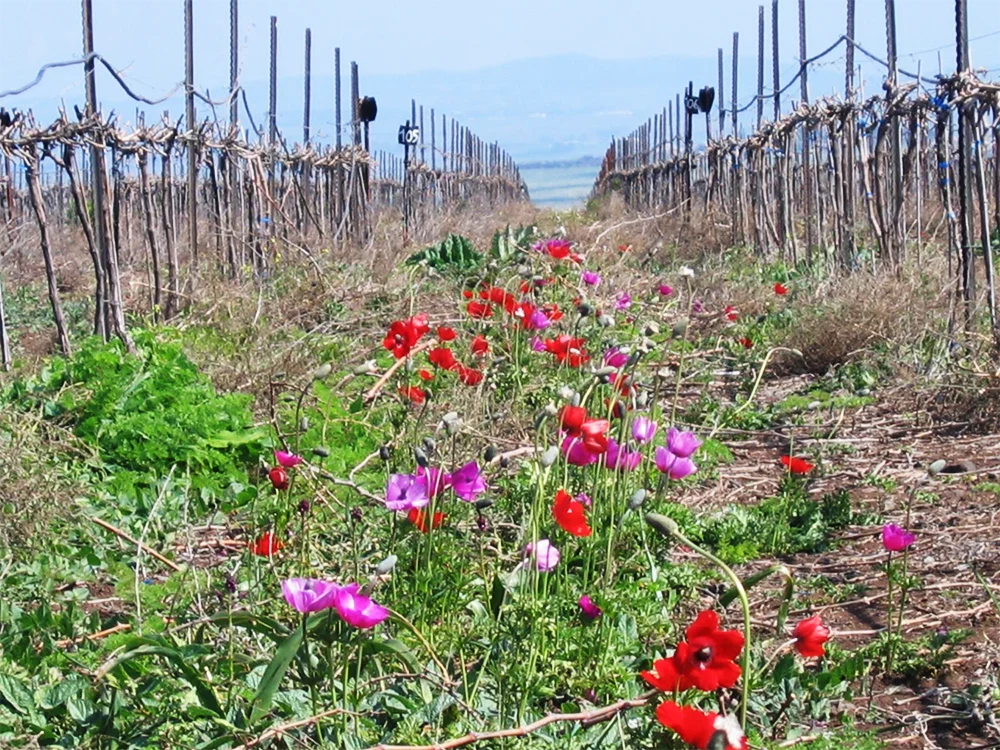
There are many who traditionally mix grape juice and Kiddush wine. I never really realized how popular this practice is. For them, I recommend Moscato (Carmel Buzz, Hermon). These wines are low alcohol (5-6%), sweet and frizzante (lightly sparkling). Even the family members who do not drink wine, will like these. So, it is always good to have some standing by. Carmel, Teperberg and Zion Wineries also produce a red or rose version of this gluggable wine if drinking red is preferred. For those that use grape juice, I believe the best are from Carmel and Zion Wineries, but the selection of the Tirosh drinker will be driven by price and brand loyalty. For the fourth cup, I suggest a sweet wine. This could be the Netofa LBV (Late Bottled Vintage) or Yarden T2, made from Portuguese varieties. These are two of our best port style dessert wines…and red of course. If white is permitted, the Yarden HeightsWine, made from Gewurztraminer, is arguably our finest dessert wine, or the aforementioned easy drinking Moscato.
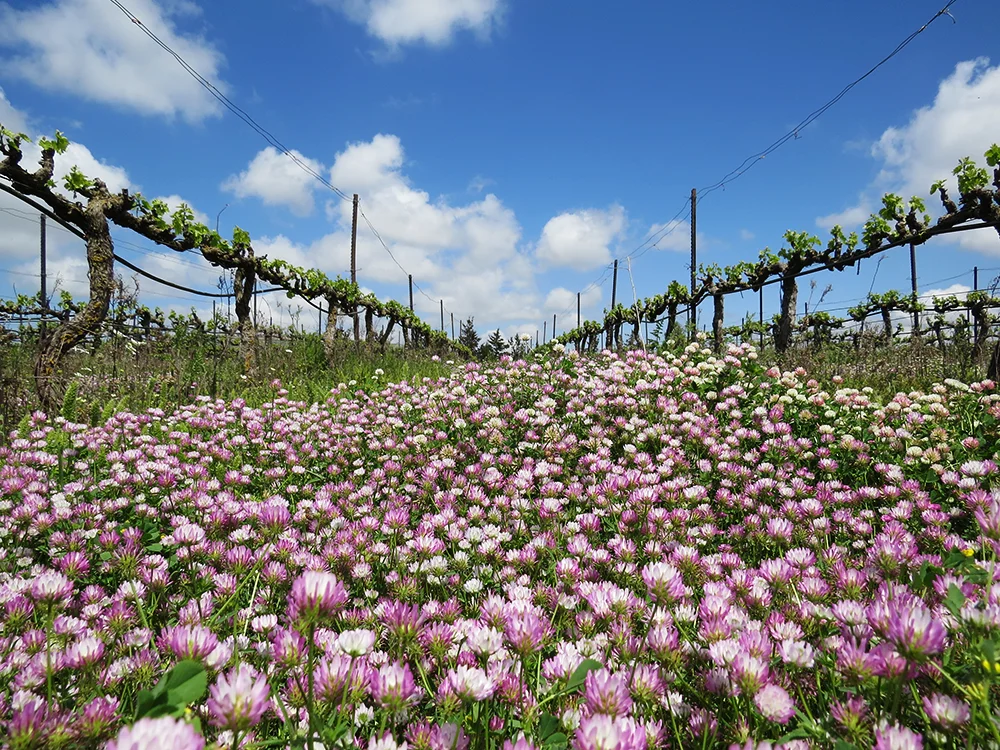
Each family has its own wine traditions. Some will use a Kiddush wine for the first glass out of habit. Others insist this should be the very finest wine of all, because it is the most important ritual glass. I usually reserve the best red for the third glass. There is also a following for having a light, easy drinking wine for the first glass, because you will be drinking on an empty stomach. Of course, there are always those who may want to use Kosher wines from France, California, Spain or Italy for the first three glasses, but the 4th glass is usually reserved for an Israeli wine. Purists will not use a Mevushal or flash pasteurized wine for the Seder, but some people do. You may, as recommended by Amichai Lourie of Shiloh Winery, choose one wine for the four cups, and monitor how it develops throughout the evening. To summarize, anything goes. Follow your own traditions for your own reasons.
Passover has always been a special wine occasion for me. When our family was small, with no less three people in the wine trade, it was a glorified wine celebration. Special rare wines were chosen and there was always a tasting on a theme. My children would ask in the weeks before “which wines are we going to taste at Pesach?” That was a luxury of a family of no more than six people. Now, as time has gone by, our growing family has combined with other growing families. So the indulgence of drinking the best has gone out of the window.
Anyway, here are my recommendations. As usual, I divide them into easily understandable price categories.
WINE DRINKERS: Up to NIS 50
Recanati Yasmin White 2023. The mark of a good winery is to make the volume wines well. This is a fragrant fresh blend of Sauvignon Blanc and Colombard. It is very refreshing and drinkable. One of the best whites in this category. Recanati Winery is situated in the Upper Galilee. All wineries from this region should receive priority this year.
Jerusalem Vintage Chardonnay 2023. This is produced by ‘Jerusalem Vineyard Winery’, (to differentiate it from the other Jerusalem Winery.) It is a delectable modern style Chardonnay. Aromas of peach and nectarine with green apple; smooth on the palate with crisp acidity. Founded in 1955 in Jerusalem, now based in Atarot, JVW has visitors’ centers at both the Montefiore Windmill, Yemin Moshe in Jerusalem and Jeruz Yard in Petach Tikvah.
Tabor Har Gewurztraminer 2022. A white to satisfy fans of Gewurz. Aromatic, flavorful with a touch of sweetness. Those that like semi dry wines will like it very much. Tabor Winery is owned by Central Bottling Company (aka Coca Cola Israel) and is situated at Kfar Tabor in the Lower Galilee.
Carmel Private Collection Rose 2023. A refreshing rose from the house of Carmel. They do not specify a grape variety, but the wine ticks the boxes. Nice color, delicate aroma and good acidity. Carmel is the historic winery of Israel and Private Collection has been an important brand since 1988.
Barkan Gold Cabernet Sauvignon 2022. Fruity, with mouth-filling flavor, this wine represents good value. Easy drinking and an enjoyable lunchtime wine. The new label is greatly improved. Barkan, the second largest winery in the country, is owned by Tempo Beverages.
WINE LOVERS: NIS 51-99.
Teperberg Inspire Art Dabouki 2023. This is part of a special edition produced with labels featuring the art of Dede, the famous graffiti artist. The wine is made from Dabouki, an indigenous local variety. It comes from a seventy-year-old vineyard. The wine has delicate tropical notes and a certain mouth coating character. Teperberg is our largest family winery.
Zion Capital Lions Gate White 2023. A fragrant, refreshing and innovative blend of Grenache Blanc, Colombard and Sauvignon Blanc. Excellent value and very drinkable. Zion, founded in 1848, is our oldest existing winery and it is still owned and managed by the Shor family.
Barkan Beta Colombard 2023. Crisp with a flowery aroma, fresh acidity and a clean finish. Colombard though regarded as a simple variety, is very suitable for the Israeli climate.
Feldstein Rose 2022. A Grenache Rose with fresh strawberry and raspberry aromas, a texture that reeks of freshness and with a mineral backbone. Feldstein is another Upper Galilee winery deserving of our support. It is one of our most innovative small wineries always searching to connect with Israeli roots and authenticity.
Galil Alon 2021. A wine blending Bordeaux and the Mediterranean varieties: Cabernet Sauvignon, Merlot and Syrah. It has body, ripe fruit aromas, a chewy flavor and a nice finish. Galil Mountain is the champion of the Upper Galilee. Their winery is on the northern border overlooked by Hezbollah. Make a special effort to support Upper Galilee wineries this year. Galil Mountain is also the leader in sustainability in Israel.
Shiloh Shor Syrah 2022. Shiloh is a regular award winner for its more expensive wines. However their entry label has some good drinking wines of excellent value. This Syrah is new. It has a balance of ripe fruit, with a note of black pepper, and it slips down. They also have a good Barbera, and a new minerally Chenin Blanc.
Kishor GSM 2022. GSM is the abbreviation for Grenache, Syrah and Mourvedre, three varieties that blend well together. The aroma of Grenache, blends with the fruit flavor and spice of Syrah and texture of Mourvedre. It is medium bodied, elegant, with a meaty flavor and a focused finish. A very good wine for our climate and cuisine. Kishor is a genuine estate winery (rare in Israel) situated in the Western Galilee. It is part of a village for adults with special needs. Admirable!
CONNOISSEURS: NIS 100-149
Netofa Tel Qasser 2021. This is a blend of Grenache and Syrah. It has a beautifully enticing aroma, with a medium body and an understated complexity. Netofa does not have its own winery, but it has one of the plushest visitors’ centers. It has a very good name for its Mediterranean style reds. This is drinkable, moreish and high quality.
Tulip Syrah Reserve 2022. I think this is one of Tulip Winery’s best reds. I have chosen it before and make no apologies for recommending it again. It has concentrated fruit aromas, is full bodied, and spicy. Big and flavorful. Tulip Winery supports adults with special needs as part of its day to day operations. Praiseworthy and inspiring.
Yarden Petit Verdot 2020. Petit Verdot is already the 5th most planted variety in Israel. It grows well throughout the country, in the valleys, on the hills, even in the desert. This expression is maybe the best varietal Petit Verdot in the country. The wine is deep, full bodied with a fine balance of fruit, herbal notes and hints of oak aging. It has a long lingering finish. The Golan Heights Winery is the pioneering winery of Israel.
FEINSCHMECKERS: NIS 150 +
Nawe White 2021. A bonus for kosher consumers. Nawe (pronounced Naveh) is the new kosher label from the house of Chateau Golan, one of our finest small non-kosher wineries. This is a high quality, multi nuanced white wine made from Sauvignon Blanc. A wine that needs respect; Don’t serve it too cold.
Psagot Homeland 2021. A blend of Cabernet Sauvignon, Petite Sirah, Shiraz and Petit Verdot. The wine is fruit forward with a silky, full flavored texture. When you open the bottle, you will finish it without noticing. It is very drinkable. Psagot is the largest winery in the Central Mountains Region.
Yatir Btsel Ha’alva 2020. (In the shade of the foliage.) From the name, one would think this is a wine the winery does not want to sell to English speakers. In fact it is sold only at the winery. However, I had to include it. It is different from the old Yatir and so many Israeli reds. It is lighter, fruitier, fresher, with lower alcohol than we are used to. The wine is a blend of Mourvedre, Syrah and Grenache grown in the goblet style in Yatir Forest. An enchanting summer red.
Bat Shlomo Betty’s Cuvee 2019. Bat Shlomo is named after Betty, wife of Baron James de Rothschild who bought Chateau Lafite for the Rothschild family, and mother of Baron Edmond de Rothschild, founder of the modern Israeli wine industry. Appropriately it is a Bordeaux blend based mainly on Cabernet Sauvignon. The wine is full bodied, opulent and richly flavored with potential for cellaring.
Israel has experienced a dreadful six months and Israeli wine also struggled. Sales crashed in the first three months after 7.10. Those in the Western Negev and Upper Galilee particularly suffered….and we too easily forget what the Galilee wineries are going through day in, day out. Maybe this year leave a place at your table not only for Elijah, but also for one of the hostages. We should also remember all those who were slaughtered in the Simchat Torah Massacre and lost their lives in the October 7th War; not forgetting for a moment the far too many who have been maimed for life or seriously injured. This Passover is all about remembering, supporting our own, being resilient and showing defiantly that life goes on.
Adam Montefiore is a winery insider turned wine writer, who has advanced Israeli wines for 35 years. He is referred to as the English voice of Israeli wine and is the Wine Writer for the Jerusalem Post. www.adammontefiore.com


